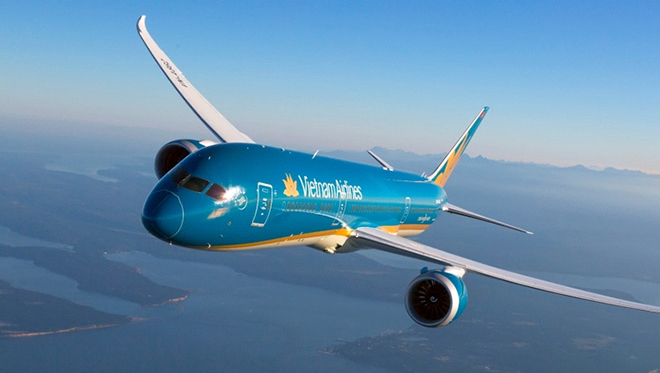Airlines face challenges in launching direct Vietnam-US flight routes
- Vietnam Airlines flight attendant stands trial for spreading COVID-19
- Vietnam Airlines offers free domestic transportation of COVID-19 vaccines
- Vietravel Airlines ready for commercial flights
 |
| Airlines face challenges in launching direct Vietnam-US flight routes |
According to a recent announcement, Vietnam's Bamboo Airways said it is finalizing preparations to operate regular direct flights from Ho Chi Minh City to San Francisco and Los Angeles of the US, starting from September 1, 2021.
Besides asking for permits, the carrier is training pilots and crew members, while finalizing the preparation of other necessary conditions for the operation of the route.
Bamboo Airways had received a permit from the US Department of Transportation to carry passengers and cargo to the country last year.
Vietnam's Ministry of Transport is also finalizing procedures to designate Bamboo Airways to operate charter flights between Vietnam and the US following a proposal made by the Civil Aviation Administration of Vietnam at the end of April.
It will allow the private airline to carry passengers and goods from Vietnam to the US and vice versa on charter flights upon approval by the Prime Minister and relevant agencies. Passengers on these flights could be experts, foreign investors and Vietnamese citizens in the US wishing to return home.
The flights would be operated using long-haul Boeing 787-9 Dreamliner aircraft. There are currently no non-stop routes between the two countries, and passengers have to transit in Hong Kong, the Republic of Korea or Taiwan, taking about 20 hours in all. A direct flight would shorten the travel time to 15-17 hours.
Bamboo Airways is the second Vietnamese carried permit from the US Department of Transportation to carry passengers and cargo to the country last year. Last September, Vietnam Airlines had become the first Vietnamese airline to secure permits from the U.S. Department of Transportation for direct flights to the U.S.
Vietnam Airlines also received licenses from the Civil Aviation Authority of Vietnam (CAAV) to operate the Airbus A350 aircraft to the U.S. It had earlier acquired a permit for Boeing 787.
However, according to experts, while this comes as good news for Vietnamese airlines as the long-awaited direct service between Vietnam and the U.S. will become a reality, local carriers acknowledge that a lot of challenges must be overcome.
Firstly, each Vietnamese airline will need to acquire various safety permits from U.S. agencies before getting the go ahead for direct flights.
Vietnam Airlines, with decades of experience in the industry, seems to be the most promising candidate to secure these permits, while Bamboo Airways, having operated for only two years, might face stiff challenges in proving its capability to conduct such long direct flights.
Last year, Vietnam Airlines conducted over 20 charter flights between the two countries. But, for regular flights, various permits are needed from the Federal Aviation Administration (FAA), the Transportation Security Administration (TSA) and the U.S. Customs and Border Protection (CBP).
The TSA is one of the toughest obstacles with its stringent requirements. It will send experts to examine Vietnamese airports before proceeding further.
A CAAV official told local media that the current fleet of Vietnam Airlines and Bamboo Airways with their Boeing 787-9 and the Airbus 350 won’t be able to fly directly to the U.S. at full capacity (over 300 seats). For long direct flights, the Boeing 777x and Airbus A350-1000 are needed, but the two carries do not own such jets, he said.
Apart from concerns over technical challenges, experts have also questioned the profitability of Vietnam-U.S. direct flights as experts estimated that the airlines might have to bear a loss from 30 to 50 million USD in the first years of operating direct flights to the US.
The leading Vietnamese aviation companies will also have face tough competition from prominent international airlines, which have already established a reputation in the U.S. market.

